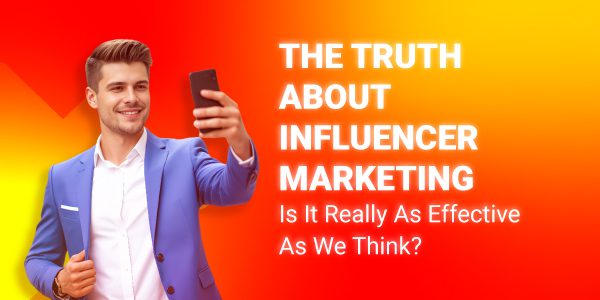Has Marketing Lost Its Way? Brands Are Returning to What Truly Matters: Connecting with People
Marketing has entered a transformative phase. After years of focusing solely on quick sales and data-driven results, brands are realizing that something crucial has been missing: authentic connection with their audiences. While digital performance and instant metrics dominated marketing strategies for a while, companies are now acknowledging that it’s not enough to just sell. They must convince and build lasting relationships with their consumers. This shift marks the return to a more holistic approach, where creating a memorable brand is just as important as driving sales.
Are We Going Backwards in Marketing?
For years, companies poured massive amounts of money into digital performance—betting on digital advertising to generate quick returns. However, the landscape is evolving. A new wave of marketers is now questioning the effectiveness of this solely performance-based approach. The conversation is shifting from data overload to a renewed focus on brand building, and companies like MediaMarkt, Nestlé, Vodafone, and L’Oréal have recognized that their previous focus on immediate returns has left them short of truly connecting with their audiences.
Kurasity Insight: The future of marketing is about making a genuine connection, not just closing a sale.
From Targeting to True Engagement: The Shift in Strategy
Targeting, which once seemed like the key to reaching specific audiences, is now facing scrutiny. Brands have relied heavily on microtargeting—showing highly specific ads to segmented audiences using data and algorithms. But as companies evaluate their campaigns, they’re starting to realize that this narrow approach hasn’t delivered the expected results.
In countries like Germany, businesses spent millions on platforms like Google and social media, yet traditional media like TV received significantly less investment. Today, the effectiveness of hyper-targeted campaigns has become questionable. The strategy, once hailed as the future of advertising, isn’t yielding the results it promised.
What Have We Learned from the New Marketing Era?
More and more brands are coming to the realization that digital ad spending alone isn’t enough. Research indicates that 31% of advertisers feel they’ve invested too much in performance-based marketing, while 32% are now shifting their focus to brand development.
Nike, for instance, faced a tough reality when it focused too heavily on digital channels at the cost of branding. As a result, the company lost over 21 billion pounds in market value. Marketing expert Mark Ritson commented that Nike’s mistake was misallocating their advertising budget, focusing solely on short-term sales instead of investing in building brand strength.
Similarly, Adidas initially made a similar mistake by cutting traditional TV ads in favor of online marketing, only to later revert back to its roots and reintroduce TV campaigns.
Studies also suggest that digital advertising has limited reach. Google and Meta primarily reach fragmented audiences, while traditional media, especially TV, continues to generate massive reach and strengthens a brand’s image.
Why Are Brands Shifting Their Focus?
Now that brands realize their previous strategy was flawed, the question remains: Why did it take so long for them to make the change? For years, marketing departments focused solely on immediate results, sidelining the importance of long-term brand development—a critical element for sustained growth.
Today, marketing is not just about launching campaigns and increasing sales. It’s about building trust, reputation, and delivering relevant content. Ultimately, what matters most is leaving a lasting impression on the consumer’s mind.
Kurasity Insight: To thrive in today’s landscape, brands must balance sales-driven actions with meaningful brand building that resonates with consumers. As companies embrace this shift, they will realize that true success lies in connecting with their audience on a deeper level.







